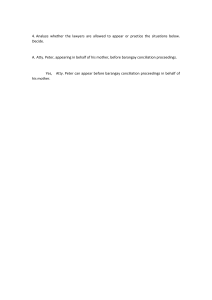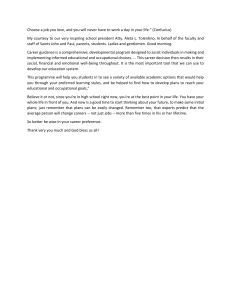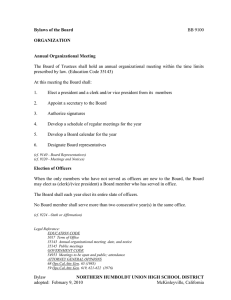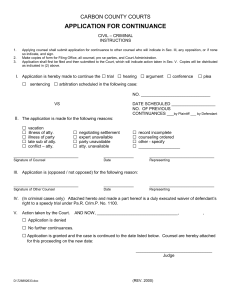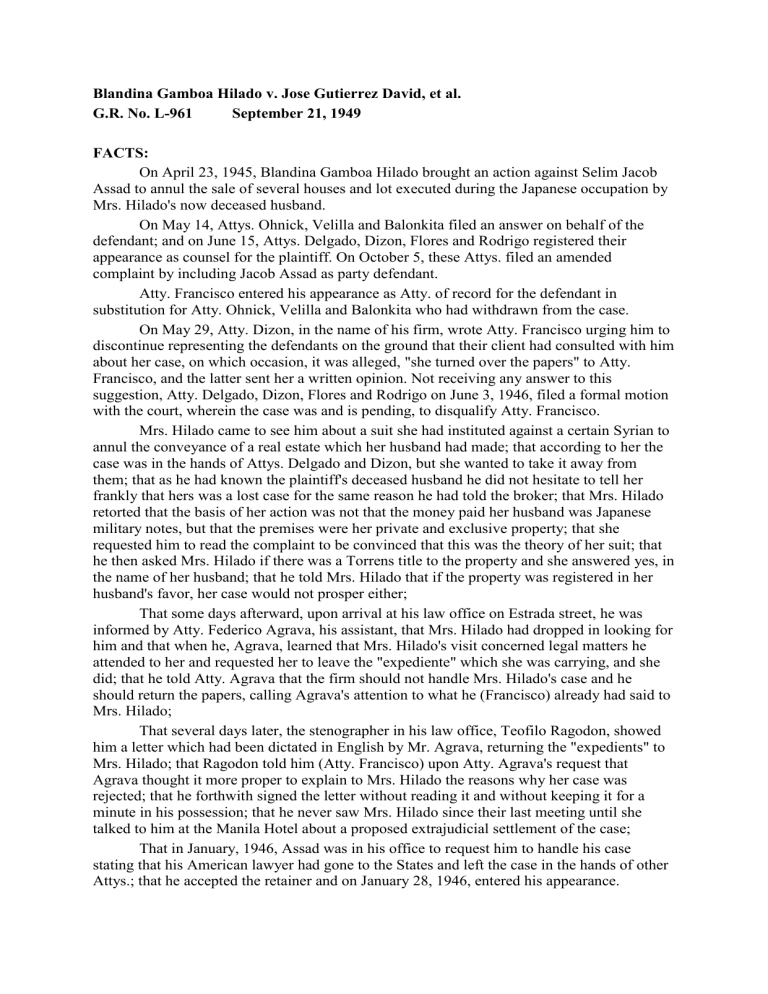
Blandina Gamboa Hilado v. Jose Gutierrez David, et al. G.R. No. L-961 September 21, 1949 FACTS: On April 23, 1945, Blandina Gamboa Hilado brought an action against Selim Jacob Assad to annul the sale of several houses and lot executed during the Japanese occupation by Mrs. Hilado's now deceased husband. On May 14, Attys. Ohnick, Velilla and Balonkita filed an answer on behalf of the defendant; and on June 15, Attys. Delgado, Dizon, Flores and Rodrigo registered their appearance as counsel for the plaintiff. On October 5, these Attys. filed an amended complaint by including Jacob Assad as party defendant. Atty. Francisco entered his appearance as Atty. of record for the defendant in substitution for Atty. Ohnick, Velilla and Balonkita who had withdrawn from the case. On May 29, Atty. Dizon, in the name of his firm, wrote Atty. Francisco urging him to discontinue representing the defendants on the ground that their client had consulted with him about her case, on which occasion, it was alleged, "she turned over the papers" to Atty. Francisco, and the latter sent her a written opinion. Not receiving any answer to this suggestion, Atty. Delgado, Dizon, Flores and Rodrigo on June 3, 1946, filed a formal motion with the court, wherein the case was and is pending, to disqualify Atty. Francisco. Mrs. Hilado came to see him about a suit she had instituted against a certain Syrian to annul the conveyance of a real estate which her husband had made; that according to her the case was in the hands of Attys. Delgado and Dizon, but she wanted to take it away from them; that as he had known the plaintiff's deceased husband he did not hesitate to tell her frankly that hers was a lost case for the same reason he had told the broker; that Mrs. Hilado retorted that the basis of her action was not that the money paid her husband was Japanese military notes, but that the premises were her private and exclusive property; that she requested him to read the complaint to be convinced that this was the theory of her suit; that he then asked Mrs. Hilado if there was a Torrens title to the property and she answered yes, in the name of her husband; that he told Mrs. Hilado that if the property was registered in her husband's favor, her case would not prosper either; That some days afterward, upon arrival at his law office on Estrada street, he was informed by Atty. Federico Agrava, his assistant, that Mrs. Hilado had dropped in looking for him and that when he, Agrava, learned that Mrs. Hilado's visit concerned legal matters he attended to her and requested her to leave the "expediente" which she was carrying, and she did; that he told Atty. Agrava that the firm should not handle Mrs. Hilado's case and he should return the papers, calling Agrava's attention to what he (Francisco) already had said to Mrs. Hilado; That several days later, the stenographer in his law office, Teofilo Ragodon, showed him a letter which had been dictated in English by Mr. Agrava, returning the "expedients" to Mrs. Hilado; that Ragodon told him (Atty. Francisco) upon Atty. Agrava's request that Agrava thought it more proper to explain to Mrs. Hilado the reasons why her case was rejected; that he forthwith signed the letter without reading it and without keeping it for a minute in his possession; that he never saw Mrs. Hilado since their last meeting until she talked to him at the Manila Hotel about a proposed extrajudicial settlement of the case; That in January, 1946, Assad was in his office to request him to handle his case stating that his American lawyer had gone to the States and left the case in the hands of other Attys.; that he accepted the retainer and on January 28, 1946, entered his appearance. The judge trying the case dismissed the same. ISSUE: Whether Atty. Francisco’s accepting Assad as client constitutes conflict of interests RULING: YES. Atty. Francisco's law firm mailed to the plaintiff a written opinion over his signature on the merits of her case; that this opinion was reached on the basis of papers she had submitted at his office; that Mrs. Hilado's purpose in submitting those papers was to secure Atty. Francisco's professional services. Granting the facts to be no more than these, we agree with petitioner's counsel that the relation of Atty. and client between Atty. Francisco and Mrs. Hilado ensued. In order to constitute the relation (of Atty. and client) a professional one and not merely one of principal and agent, the Attys. must be employed either to give advice upon a legal point, to prosecute or defend an action in court of justice, or to prepare and draft, in legal form such papers as deeds, bills, contracts and the like. To constitute professional employment it is not essential that the client should have employed the Atty. professionally on any previous occasion… It is not necessary that any retainer should have been paid, promised, or charged for; neither is it material that the Atty. consulted did not afterward undertake the case about which the consultation was had. If a person, in respect to his business affairs or troubles of any kind, consults with his Atty. in his professional capacity with the view to obtaining professional advice or assistance, and the Atty. voluntarily permits or acquiesces in such consultation, then the professional employment must be regarded as established… An Atty. is employed-that is, he is engaged in his professional capacity as a lawyer or counselor-when he is listening to his client's preliminary statement of his case, or when he is giving advice thereon, just as truly as when he is drawing his client's pleadings, or advocating his client's cause in open court. Section 26 (e), Rule 123 of the Rules of Court provides that "an Atty. cannot, without the consent of his client, be examined as to any communication made by the client to him, or his advice given thereon in the course of professional employment;" and section 19 (e) of Rule 127 imposes upon an Atty. the duty "to maintain inviolate the confidence, and at every peril to himself, to preserve the secrets of his client." There is no law or provision in the Rules of Court prohibiting Attys. in express terms from acting on behalf of both parties to a controversy whose interests are opposed to each other, but such prohibition is necessarily implied in the injunctions above quoted. In fact the prohibition derives validity from sources higher than written laws and rules. That only copies of pleadings already filed in court were furnished to Atty. Agrava and that, this being so, no secret communication was transmitted to him by the plaintiff, would not vary the situation even if we should discard Mrs. Hilado's statement that other papers, personal and private in character, were turned in by her. Precedents are at hand to support the doctrine that the mere relation of Atty. and client ought to preclude the Atty. from accepting the opposite party's retainer in the same litigation regardless of what information was received by him from his first client.
